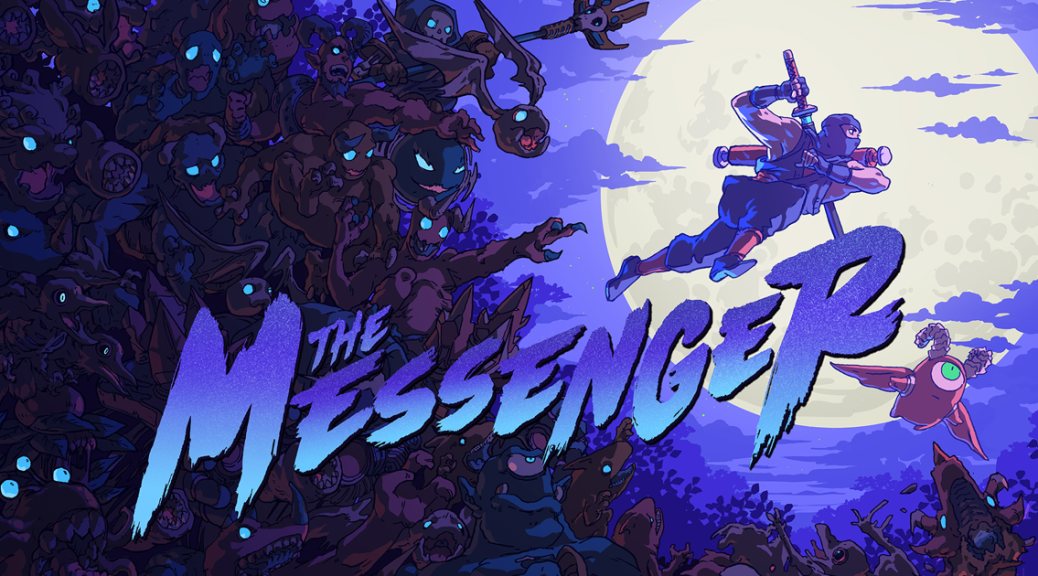
The Messenger
The Messenger is basically the 2D Ninja Gaiden IV that never was, since the actual fourth Ninja Gaiden instead decided to be Devil May Cry as designed by an asshole. Except that description only covers half of the game at best. It’s actually one of those games that hides its full intentions and is usually critiqued only in vague terms to avoid spoilers. It’s much more lighthearted than other examples of the practice, however, and it doesn’t try particularly hard to maintain some kind of charade, so everything after this paragraph should be considered spoiler territory, and I don’t have to feel bad about that. The overall non-spoiler impression is that The Messenger is a solid throwback that’s more ambitious than it looks but also too ambitious for its own good. It also has an Easter egg that unironically quoted Jordan Peterson at me and made me feel gross.
The specific hidden twist here is that partway through the story, the aesthetics advance to 16 bits and the gameplay expands from a level-based action platformer to a Metroidvania action platformer. Time travel is the in-universe justification, and the second half of the game involves switching between the two periods as a traversal and puzzle-solving tool. it’s impossible to optimally design a game for two styles of gameplay simultaneously – this is the trap that snares all games that try something like this – but The Messenger makes a valiant attempt. The platforming upgrades that initially appear to be simply a mercy for struggling players turn out to be crucial for making the incoming larger world more convenient to traverse. Additionally, the visual and mechanical overhaul makes returning to previous areas more novel and cathartic than it would be otherwise. Unfortunately, the expanded world is still founded on difficult Ninja Gaiden-style platforming, so instant-death traps remain annoyingly common, and the dearth of fast travel points doesn’t help.
The time travel gimmick also could have been implemented better. For every location that logically changes between periods, there’s another whose differences are completely arbitrary. It doesn’t do the story any favours, either. The plot of The Messenger is bonkers, likely as a nod to Ninja Gaiden’s twist-heavy narratives. But while those were used to maximize the impact of their ground-breaking cutscenes, this one is merely overcomplicated for its own sake. It also has a habit of pointing out its own glaring plot holes, a symptom of the game being kind of funny but not as much as it thinks it is. Its other throwback attempts are more successful at demonstrating why the 3rd and 4th console generations carry so much nostalgia; the controls are simple and precise, and the soundtrack is immediately memorable. As I said pre-spoiler warning, The Messenger is solid, as long you feel that invention and surprise can make up for the inevitable grinding of gears.